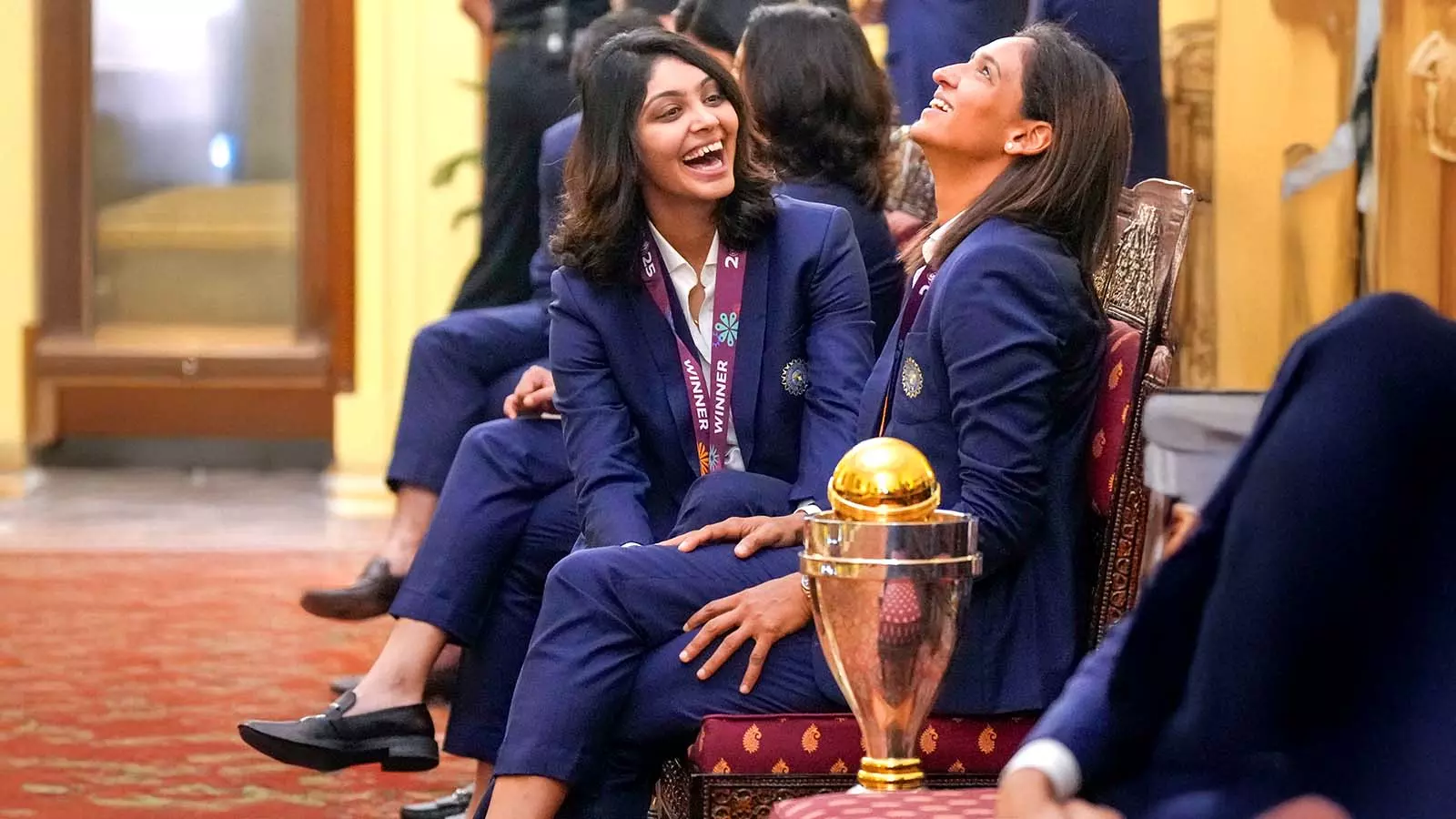
- Home
- India
- World
- Premium
- THE FEDERAL SPECIAL
- Analysis
- States
- Perspective
- Videos
- Sports
- Education
- Entertainment
- Elections
- Features
- Health
- Business
- Series
- In memoriam: Sheikh Mujibur Rahman
- Bishnoi's Men
- NEET TANGLE
- Economy Series
- Earth Day
- Kashmir’s Frozen Turbulence
- India@75
- The legend of Ramjanmabhoomi
- Liberalisation@30
- How to tame a dragon
- Celebrating biodiversity
- Farm Matters
- 50 days of solitude
- Bringing Migrants Home
- Budget 2020
- Jharkhand Votes
- The Federal Investigates
- The Federal Impact
- Vanishing Sand
- Gandhi @ 150
- Andhra Today
- Field report
- Operation Gulmarg
- Pandemic @1 Mn in India
- The Federal Year-End
- The Zero Year
- Science
- Brand studio
- Newsletter
- Elections 2024
- Events
- Home
- IndiaIndia
- World
- Analysis
- StatesStates
- PerspectivePerspective
- VideosVideos
- Sports
- Education
- Entertainment
- ElectionsElections
- Features
- Health
- BusinessBusiness
- Premium
- Loading...
Premium - Events

In an age when sporting triumphs are often choreographed for cameras, the Indian women reminded us that victory can be sincere, collective, and kind: Women's cricket team captain Harmanpreet Kaur with teammate Harleen Deol during the team's meeting with President Droupadi Murmu following their victory in the ODI World Cup, at Rashtrapati Bhavan, in New Delhi, on November 6, 2025.
India’s historic Women World Cup win wasn’t just a triumph of cricket – it was a masterclass in humility, legacy, and the quiet power of inclusive leadership
What if women ruled the world? Perhaps we caught a glimpse of it on the night India’s women lifted the World Cup at the DY Patil Stadium in Navi Mumbai.
India had just beaten South Africa by 52 runs to claim their first-ever ICC Women’s ODI World Cup title. Fireworks split the sky, the tricolour rippled across the stands, and for once, a billion hearts exhaled in unison. Yet, amid the cheers and confetti, the night unfolded differently.
It wasn’t just about victory. There was something softer in the air, a warmth, a sense of grace that transcended sport.
Moment of grace
Everything about the post-match ceremony began as expected. The captain hoisted the trophy. The players jumped, screamed, and waved to the crowd. But what followed transformed a sporting triumph into a moment of cultural grace.
Instead of soaking in the spotlight, the players looked beyond themselves. They turned toward the women who had carried Indian cricket when nobody was watching Mithali Raj, Jhulan Goswami, Anjum Chopra, Reema Malhotra and called them onto the field. They didn’t just thank them with words; they shared the trophy, embraced them, and made them part of the moment they had made possible.
From the days when women cricketers travelled in unreserved compartments and paid for their own kits, to an era of packed stadiums and million-dollar leagues, the journey had been long, lonely, and often thankless.
Also read: Mamatha Maben hails India women winning cricket World Cup: 'There's no looking back'
It wasn’t a planned tribute. It was spontaneous and pure. Mithali stood with the cup in her hands, smiling through tears. Jhulan, the tireless fast bowler from Chakdaha who once borrowed shoes to play, was speechless. For years, these women had fought for basic allowances, played on empty grounds, and endured a system that rarely saw them.
That night, they weren’t forgotten footnotes, they were part of the story’s climax.
A homecoming
For the current generation of Harmanpreet Kaur, Smriti Mandhana, Jemimah Rodrigues, Deepti Sharma, this victory wasn’t about personal glory. It was about continuity. They understood that their success stood on the shoulders of those who had played for nothing more than love for the sport.
From the days when women cricketers travelled in unreserved compartments and paid for their own kits, to an era of packed stadiums and million-dollar leagues, the journey had been long, lonely, and often thankless. But this win was for everyone, for every young girl who had ever been told cricket wasn’t for her, for every mother who had fought to let her daughter play, and for those who stayed when there were no cameras, no sponsors, no applause. It was a homecoming.
That was the beauty of it. The Indian girls didn’t just celebrate with their past, they reached out to their opponents too. Smriti Mandhana and Jemimah Rodrigues were seen hugging their South African counterparts in tears. Captain Harmanpreet Kaur personally invited Laura Wolvaardt’s team to join the celebration.
What sport is about
Humble in victory and graceful in defeat, the oldest sporting motto, found its truest expression that night. As the Indian players celebrated their maiden World Cup title, heartbroken South African players struggled to hold back tears. Smriti, Jemimah, and Radha Yadav left their own celebrations to console the sobbing South African stars, including Marizanne Kapp, playing her fifth World Cup.
The scene was a far cry from the aggression and performative emotion that often follow big matches in men’s cricket. There were no choreographed poses, no brand-driven theatrics, no chest-thumping. Just laughter, shared humanity, and an unspoken acknowledgment that sport, at its best, connects rather than divides.
Also read: India bring back '83', this time with women power
Perhaps this is what the world might look like if women ruled it, where competition coexists with compassion, where success doesn’t erase humility, and where victory feels like an embrace rather than a declaration.
This isn’t about comparing men and women. It’s about the culture of leadership that women revealed that night, a leadership built on inclusion, not assertion. In an age when sporting triumphs are often choreographed for cameras, the Indian women reminded us that victory can be sincere, collective, and kind. Their gesture wasn’t about modesty, it was about maturity. They knew that this trophy belonged to more than the eleven who played that day. It belonged to every woman who had once picked up a bat in defiance of expectation.
Ravi Ashwin later spoke about the moment on his YouTube channel. “They reminded us what sport is really about,” he said. “They remembered people when it mattered most.” He praised the women’s team for giving true credit to the previous generation, something, he noted, men often talk about but seldom live.
Bridge between eras
By the time Mithali Raj held the trophy again, this time surrounded by the players who had grown up watching her, it was no longer just a symbol of victory. It had become something else: a bridge between eras. A lineage of courage and gratitude. A story of women who refused to fade into the footnotes.
And maybe that’s why this night will be remembered not for the scoreboard, but for its soul. It showed a different kind of power, one that doesn’t need to shout. A power that knows acknowledgment doesn’t diminish achievement, that kindness can carry the same weight as conquest.
Perhaps this is what the world might look like if women ruled it, where competition coexists with compassion, where success doesn’t erase humility, and where victory feels like an embrace rather than a declaration.
Also read: Ind vs Pak handshake row: Let us not demonise Pakistanis in the name of jingoism
As the lights dimmed over DY Patil Stadium, the images lingered: Jhulan laughing with the youngsters, Mithali wiping her eyes, the South African players smiling through heartbreak, arms intertwined with the Indian team. No slogans. No hashtags. No orchestration. Just grace.
That night, Indian cricket rediscovered something it had long misplaced. Its heart! And in doing so, the women reminded us that the truest celebrations aren’t about who stands tallest, but about who remembers to reach back and hold another hand.
If this is what the world looks like when women lead, it’s a vision worth believing in.
(The Federal seeks to present views and opinions from all sides of the spectrum. The information, ideas or opinions in the articles are of the author and do not necessarily reflect the views of The Federal)


